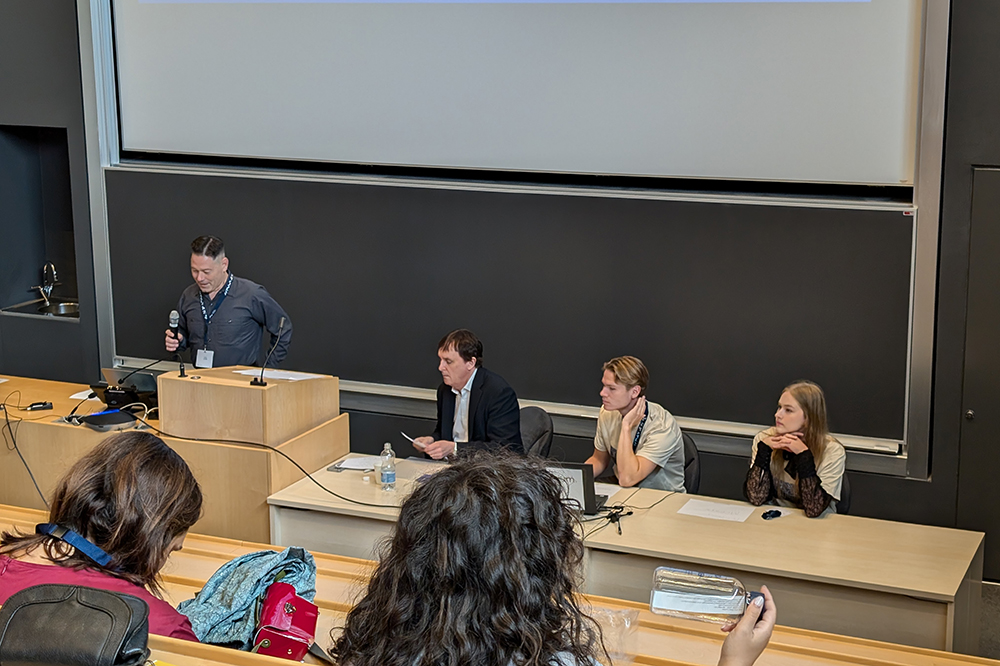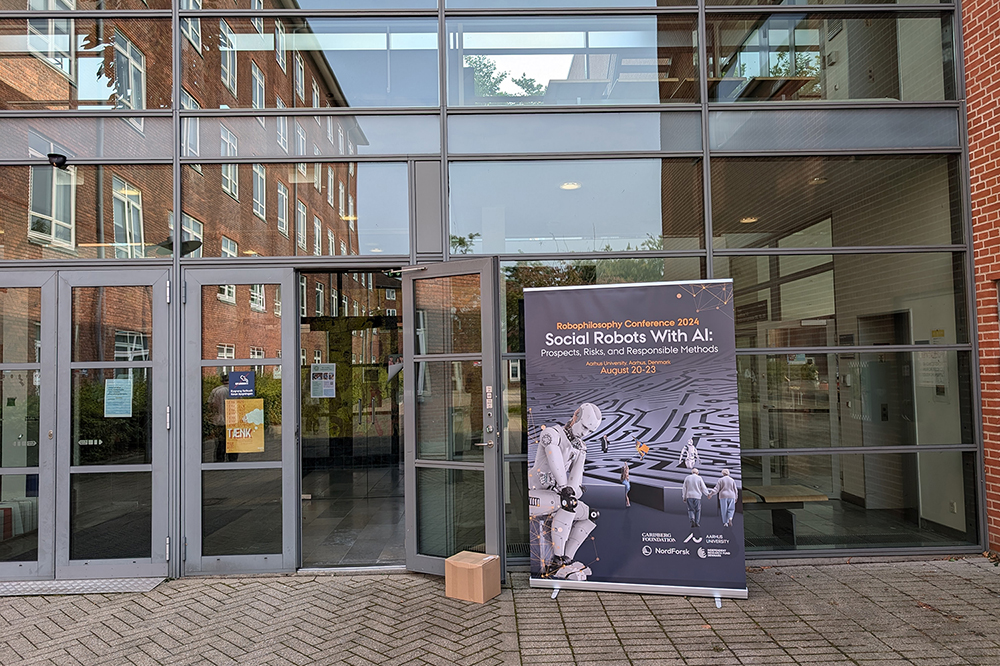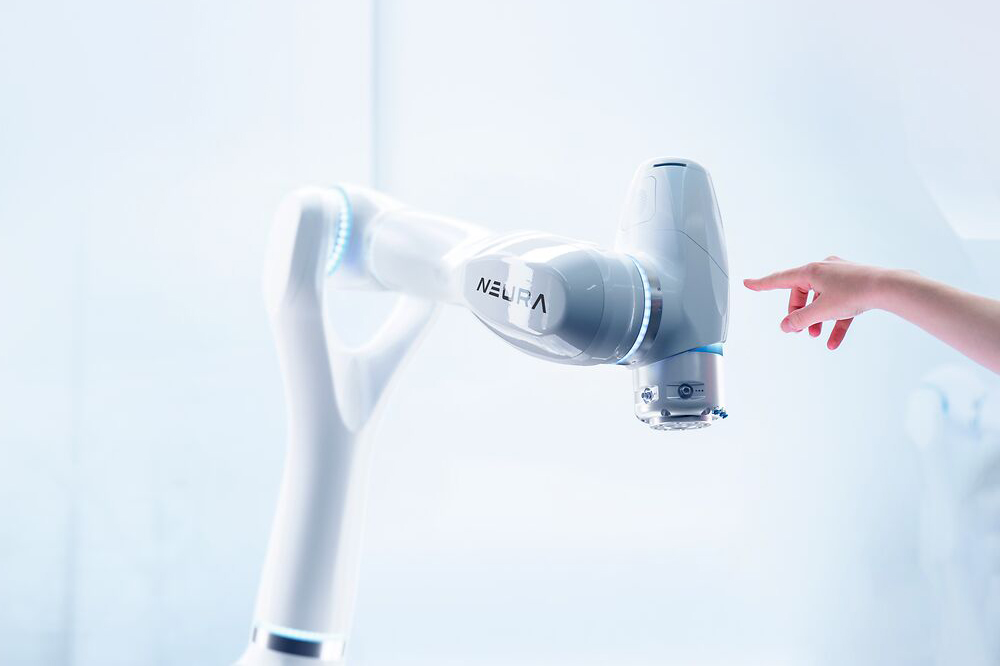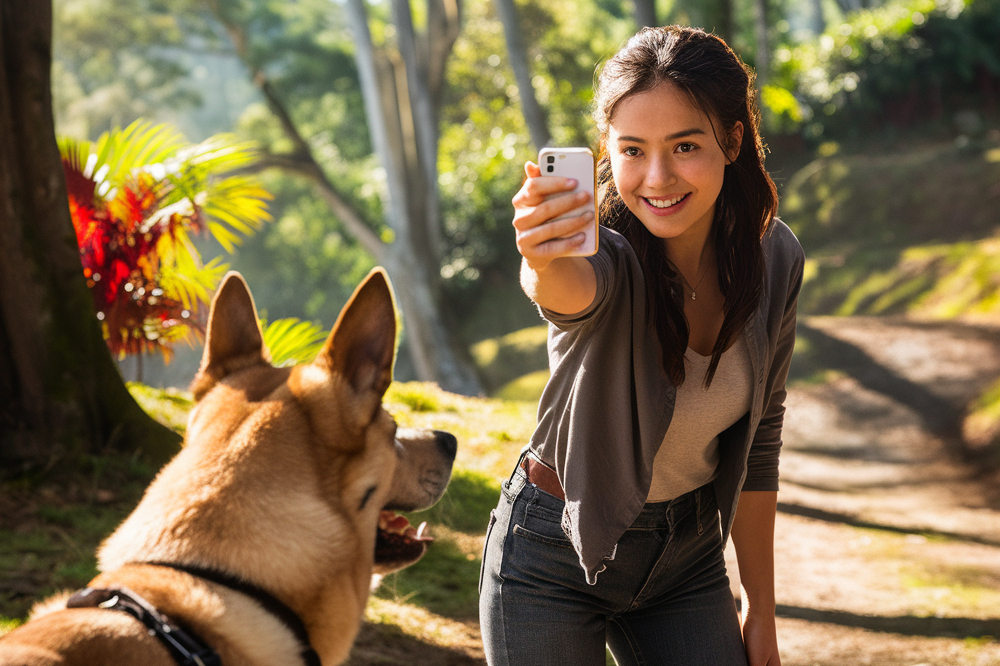On the second day of Robophilosophy 2024, Anthony Elliott, Distinguished Professor of Sociology at the University of South Australia, gave a keynote speech entitled “May AI Be With You: Agency and Automation in the Age of Algorithmic Modernity”. From the abstract: “From industrial robots to ChatGPT, and from driverless cars to military drones: AI is transforming all aspects of our lives, from the changing nature of work, employment and unemployment to the most intimate aspects of personal relationships. In this presentation, Anthony Elliott focuses on the complex systems of AI – spanning intelligent machines, chatbots, advanced robotics, accelerating automation, big data – and their centrality to new forms of social interaction, organizational life and governance. He argues, provocatively, that today modernity has come to mean smartphones, tablets, cloud computing, big data, automated recommendation systems and predictive analytics. This has heralded the arrival of what he terms ‘algorithmic modernity’, an altogether new ‘stage’ in the ordering techniques of envisioned human mastery. In this automated order of algorithmic modernity, human agency is increasingly outsourced to smart machines. We should understand this phenomenon, Elliott argues, in terms of a containment of both uncertainty and complexity which the digital revolution in social relations poses, but which ultimately denies answers.” (Website Robophilosophy 2024) In his presentation, the sociologist emphasised the risks of AI rather than the opportunities. The photo shows David Gunkel announcing Anthony Elliott’s lecture – he is sitting on the far left.
Keynote by Wendell Wallach
On the first day of Robophilosophy 2024, Wendell Wallach, one of the fathers of machine ethics, gave a keynote speech entitled “Re-envisioning Ethics: From Moral Machine to Extensive Regulation”. From the abstract: “Have we been underestimating the socio-technical challenges posed by ro(bot)s – physical systems and virtual bots? Many of the complexities inherent in managing intelligent systems can not be adequately met by scientific innovation, existing ethical constraints, or weak regulations forged by legislatures under the capture of the AI oligopoly. In spite of naive future projections, the science we have, and are likely to have in the near future, will not produce AI systems capable of making even satisfactory choices in complex situations where uncertainty reigns, multiple values converge, and the information available is inadequate to project meaningful consequences for various courses of action. AI will pose safety and security risks far beyond those being addressed by the pittance of investment presently directed to build trustworthy systems. Scientific humility is needed. Ethics must be reenvisioned and empowered to work through the plethora of socio-technical obstacles and trials ahead. A vast infrastruture to ensure AI safety will be required.” (Website Robophilosophy 2024) Wendell Wallach went far beyond these hints and gave an overview of the advances and setbacks in machine ethics and AI ethics in recent decades.
Start of Robophilosophy 2024
On August 20, 2024, Robophilosophy 2024 was opened with words of welcome from Maja Horst, Dean of the Faculty of Arts at Aarhus University, and Johanna Seibt, Professor of the School of Culture and Society at Aarhus University. The website says: “The international research conference RP2024 will discuss the questions that really matter in view of the new technological potential of social robotics. In over 100 research talks, RP2024 will address concrete and deep issues that reach far beyond safety and privacy concerns into the conceptual and normative fabric of our societies and individual self-comprehension.” (Website Robophilosophy 2024) The first keynote on the first day of the conference was given by Wendell Wallach, one of the world’s best-known machine ethicists. With his book “Moral Machines” (2009), he laid the foundation for a discipline that has been developing in science fiction and science for years and decades. This was followed in 2011 by “Machine Ethics” by Michael Anderson and Susan L.eigh Anderson. In addition to machine ethics, Robophilosophy is dedicated to robot ethics and other interesting perspectives on social robots.
A Cobot as Conductor of a Symphony
Cobots that dance with humans have been around for a long time. In 2016, the audience at Südpol Luzern witnessed dance and robot history being written by Huang Yi, a choreographer from Taiwan. Cobots that set the pace for humans, on the other hand, are not yet the order of the day. The Dresden Symphony Orchestra is about to perform the “Roboter.Sinfonie”. After a while, conductor Michael Helmrath will hand over to MAiRA Pro S, a product from NEURA Robotics. According to Deutschlandfunk, the machine’s three arms will be able to guide the orchestra, which is divided into groups, through the most complex passages independently of each other. This will break completely new musical ground. According to the Dresden Symphony Orchestra’s calendar, the concerts will take place on October 12 and 13, 2024 at the Europäisches Zentrum der Künste Hellerau (Image: NEURA Robotics).
Cow Whisperer, Horse Whisperer, and Dog Whisperer
On August 5, 2024, the final presentation for the project “The Animal Whisperer” took place at the FHNW School of Business. It was initiated by Prof. Dr. Oliver Bendel, who has been working on animal-computer interaction and animal-machine interaction for many years. Nick Zbinden, a budding business informatics specialist, was recruited as a project collaborator. From March 2024, he developed three applications based on GPT-4o, the Cow Whisperer, the Horse Whisperer and the Dog Whisperer. They can be used to analyze the body language, behaviour, and environment of cows, horses and dogs. The aim is to avert danger to humans and animals. For example, a hiker can receive a recommendation on their smartphone not to cross a pasture if a mother cow and her calves are present. All they have to do is call up the application and take photos of the surroundings. The three apps are now available as prototypes. With the help of prompt engineering, they have been given extensive knowledge and skills. Above all, self-created and labeled photos were used. In the majority of cases, the apps correctly describe the animals’ body language and behavior. Their recommendations for human behavior are also adequate. The project team summarized the results in a paper and submitted it to an international conference (Image: Ideogram).
An AI-generated Teen Collection
Spanish fashion chain Mango has launched an advertising campaign created using AI models. First, all the clothes were photographed, then an AI model was trained to place the images on artificially generated models. The images were then retouched and edited. This was reported by Golem in an article dated July 30, 2024. Digital models are not new. They have been used for decades in various contexts, from computer games to mobile phone applications. Cameron-James Wilson founded an agency for digital models in London in 2019. He is the creator of the digital supermodel Shudu. Her sisters are Noonoouri and Lil Miquela. Since the triumph of generative AI, models have moved into another league. There are now beauty pageants for AI-generated models. The winners of Miss AI 2024 are Kenza Layli (Morocco), Lalina (France), and Olivia C (Portugal). They are already successfully represented on Instagram, showing themselves in various poses and dresses. According to Golem, Mango plans to sell the advertised collection in 95 countries. With this step, the company aims to reduce the costs that would otherwise be incurred for photographers, models and the entire production process (Image: DALL-E 3).





